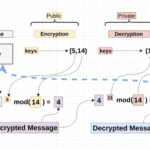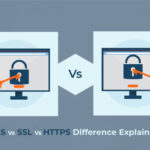Imagine waking up each day to a world intricately woven with codes, algorithms, and secret messages. Cryptography, the art of encoding and decoding information, surrounds us in myriad forms, creating an invisible shield around our personal and professional lives. But have you ever pondered how many times you interact with cryptography on a daily basis, often without even realizing it? What if you could imagine life without these defenses? The implications are staggering.
From the moment you log into your smartphone to the instant you make an online purchase, cryptography plays an essential role in safeguarding your private information. Let’s embark on a revealing exploration of some of the best applications of cryptography that you encounter every day.
1. Secure Online Communication
Every time you send a message through an instant messaging app, whether it’s WhatsApp, Signal, or Telegram, you’re relying on cryptographic protocols to ensure your conversations remain private. These applications employ end-to-end encryption, meaning that only the sender and recipient can decrypt and read the messages. This encryption acts as an impenetrable barrier, protecting your thoughts from prying eyes—be they hackers or even the service providers themselves.
However, consider this: how would you feel if one day, due to a vulnerability, your private messages were exposed to the public? The psychological ramifications of such exposure could be profound, affirming the necessity for robust cryptographic measures to maintain our digital sanctuaries.
2. E-Commerce Security
Every online transaction is a dance of data exchange—your sensitive information waltzes across the internet, needing protection against interceptors. In this realm, cryptography ensures the security of your credit card details and personal data during purchases. When you see that little padlock icon in your browser’s address bar, you can rest assured that your data is being transmitted using the Secure Sockets Layer (SSL) or its successor, Transport Layer Security (TLS).
Have you ever hesitated to enter your credit card information online? This hesitancy is rooted in our innate desire for security. Cryptography, in this case, transforms outlandish fears into a controlled risk, allowing you to shop with confidence.
3. Virtual Private Networks (VPNs)
VPNs create private connections over a public network, enabling users to surf the internet anonymously. This is accomplished through the use of powerful encryption protocols, which mask your IP address and secure your data. The importance of this technology cannot be overstated in a world rife with cybersecurity threats.
Have you ever used a public Wi-Fi network, such as in a café or airport? While convenient, these networks can expose you to a myriad of attacks. Using a VPN while connected to such a network acts as your cyber knight in shining armor, utilizing cryptography to ensure that your confidential exchanges remain clandestine.
4. Data Encryption
In our digitized environment, the very essence of protection relies heavily on data encryption. Personal information—from files on your computer to sensitive documents in the cloud—must be encrypted to guard against unauthorized access. Full-disk encryption tools like BitLocker or FileVault encrypt your hard drives, ensuring that the data remains inaccessible without proper authentication.
Reflect for a moment on the implication of losing sensitive information stored unprotected. The financial and reputational damages could be catastrophic. Hence, the implementation of cryptographic encryption is not simply a precautionary measure; it is an imperative necessity.
5. Secure Email Communication
Email remains a prevalent form of communication, yet it is fraught with vulnerabilities. Services that provide encrypted email, such as ProtonMail or Tutanota, ensure that messages are encoded before they are transmitted. This means that even if an email were intercepted, the contents would remain incomprehensible to any unauthorized user.
Ever felt anxious about the information you send through email? With cryptographic safeguards in place, the dread of sensitive information falling into the wrong hands is alleviated, empowering users to communicate freely and securely.
6. Digital Signatures
In an era where transactions often occur remotely, digital signatures serve as a cornerstone for verifying authenticity. This cryptographic mechanism validates the identity of signers and assures the integrity of documents. Think of digital contracts, for instance; they depend on this technology to guarantee that any alterations to the document would render the signature invalid, thus safeguarding against deceitful practices.
Have you ever considered the authenticity of a document in a digital context? Thanks to cryptographic digital signatures, you can have certainty—a layer of trust in a world where outright deception is possible.
7. Blockchain Technology
Perhaps the most sophisticated application of cryptography is found in blockchain technology. This decentralized ledger system inherently relies on cryptographic techniques to ensure the security and integrity of transactions. Each block in the blockchain is cryptographically linked to the previous block, creating an unalterable chain. As cryptocurrencies gain traction, so too does the importance of understanding the cryptographic underpinnings that secure transactions, ensuring that they are tamper-proof.
As you consider the burgeoning landscape of digital currencies, ponder the role of cryptography therein. How often have you doubted the security of your assets in a digital realm? This technology promises unprecedented levels of safety and transparency.
Conclusion
Cryptography is omnipresent and integral to contemporary digital interactions. From securing communications to safeguarding online transactions and ensuring the authenticity of identities, its applications are both wide-ranging and crucial. As you navigate your daily digital activities, take a moment to appreciate the complex web of cryptographic measures that work tirelessly to protect your information. The next time you pull out your smartphone or shop online, ask yourself: “What unseen protections shield my digital life today?” Only through a comprehension of these technologies can we truly appreciate the secure realms we traverse daily.








Leave a Comment